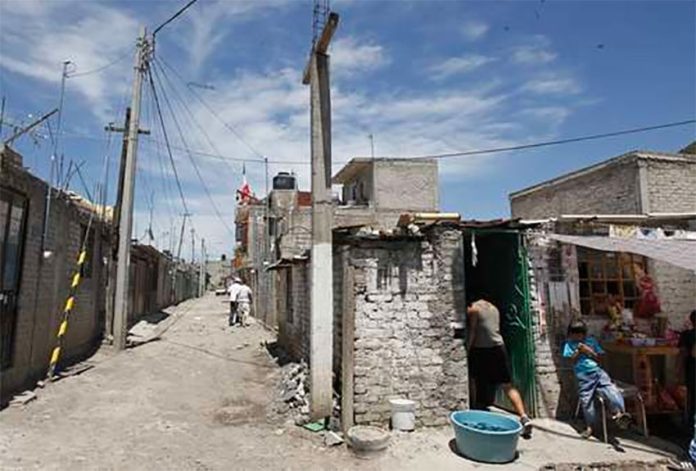The coronavirus-induced economic crisis could push more than 34 million additional people – about one in four Mexicans – into poverty in a worst case scenario, according to an analysis by the research division of the bank BBVA.
If the Mexican economy contracts by 12% this year – the low-end of the bank’s current forecast range – 16.4 million additional people would find themselves in situations of “income poverty” and 18 million more would be pushed into “extreme income poverty,” BBVA said.
The federal government’s social development agency, Coneval, sets the poverty line at income of 3,208 pesos (US $140) per month for people living in urban areas and 2,086 pesos (US $92) for those living in rural areas. The extreme poverty line is set at income of 1,632 pesos per month (US $72) in urban areas and 1,165 pesos (US $51) in rural areas.
If the economy shrinks by a more modest 7% this year – BBVA’s most optimistic forecast – 12 million additional people will be pushed into “income poverty” and 12.3 million people will find themselves in situations of “extreme income poverty.”
According to the bank’s 7% contraction analysis, the combined number of additional people who would be considered impoverished due to their income would be 24.3 million, 29% fewer than in the more dire scenario.
A recession just 0.5% less severe – a forecast in line with the 6.5% contraction predicted by the United Nations Economic Commission for Latin America and the Caribbean – would leave an additional 16.6 million people in situations of poverty and extreme poverty, BBVA said.
BBVA México chief economist Carlos Serrano told the newspaper La Jornada that Mexico will face a “new economic reality” as a result of the coronavirus crisis.
“We know that the country has enormous inequalities and the pandemic will exacerbate them,” he said, adding that the government will have to take additional measures to address the situation. Tax breaks, higher pensions and improvements to public education and health care could all help to reduce inequality, Serrano said.
The BBVA Research analysis comes a week after the Mexican Social Security Institute reported that more than 750,000 formal sector workers lost their jobs between the middle of March and the end of April.
Serrano said that more job losses can be expected in the short term even as the federal government takes steps to reopen the economy from June 1 despite the worsening coronavirus pandemic.
Source: Milenio (sp), La Jornada (sp)
